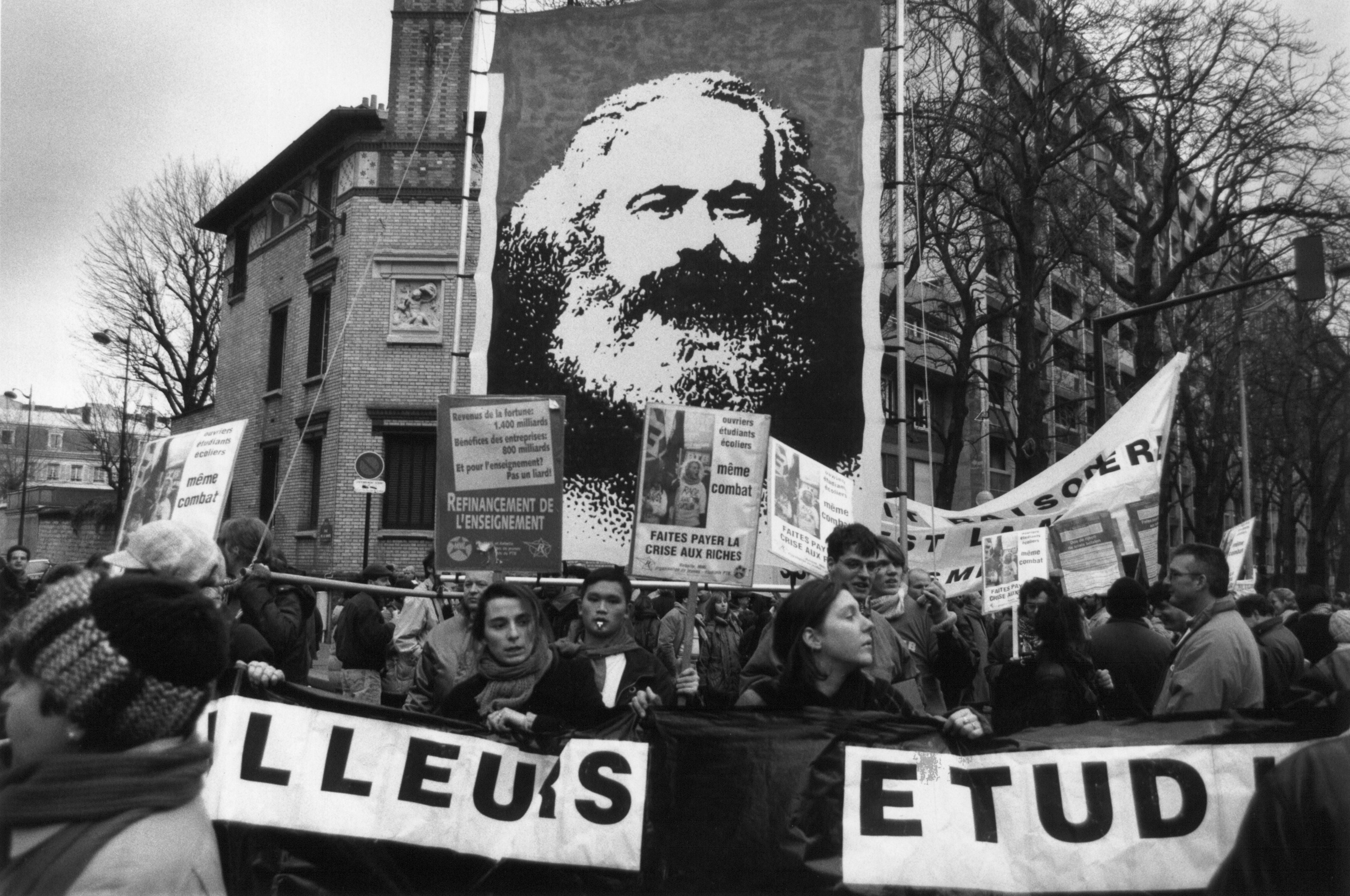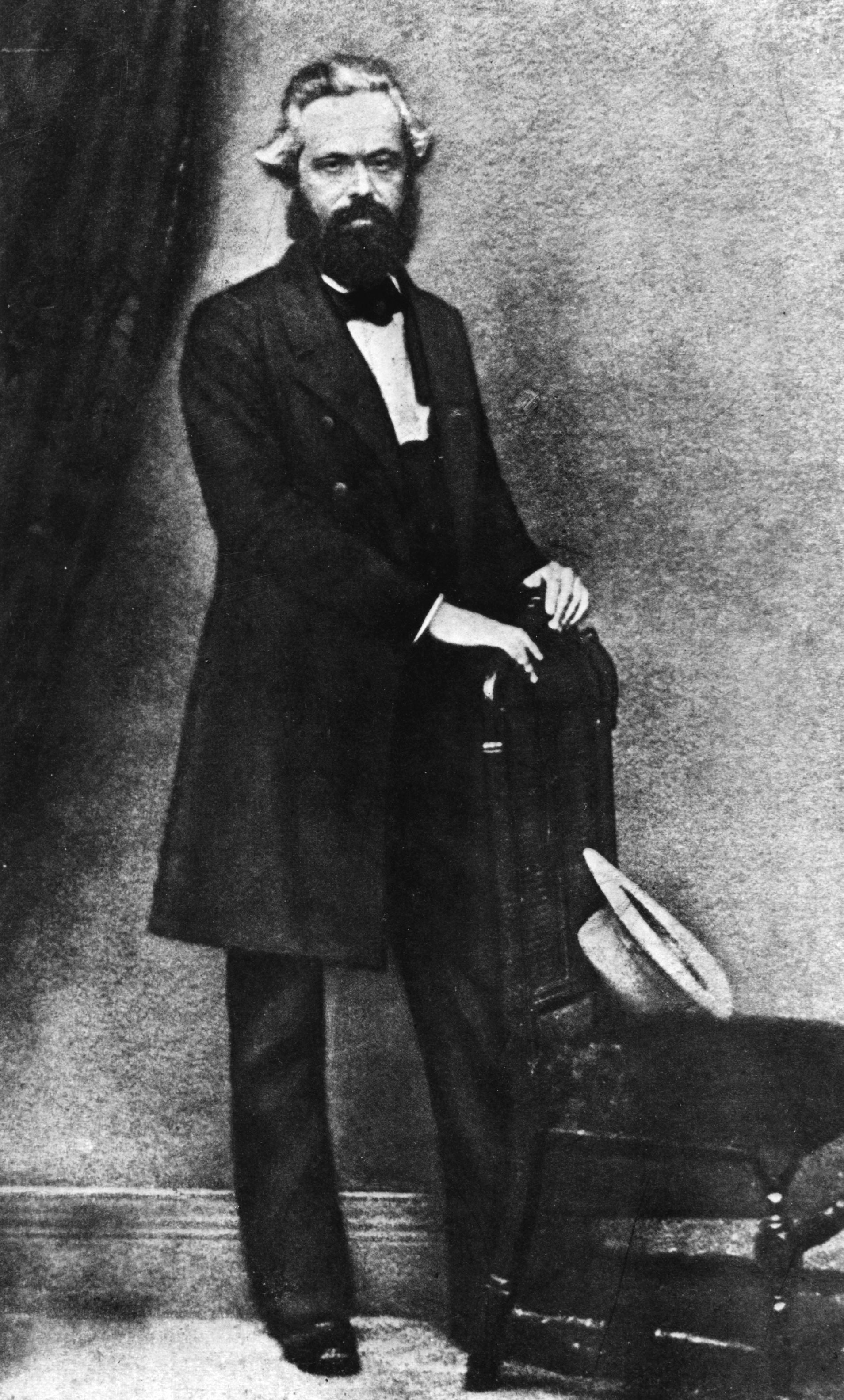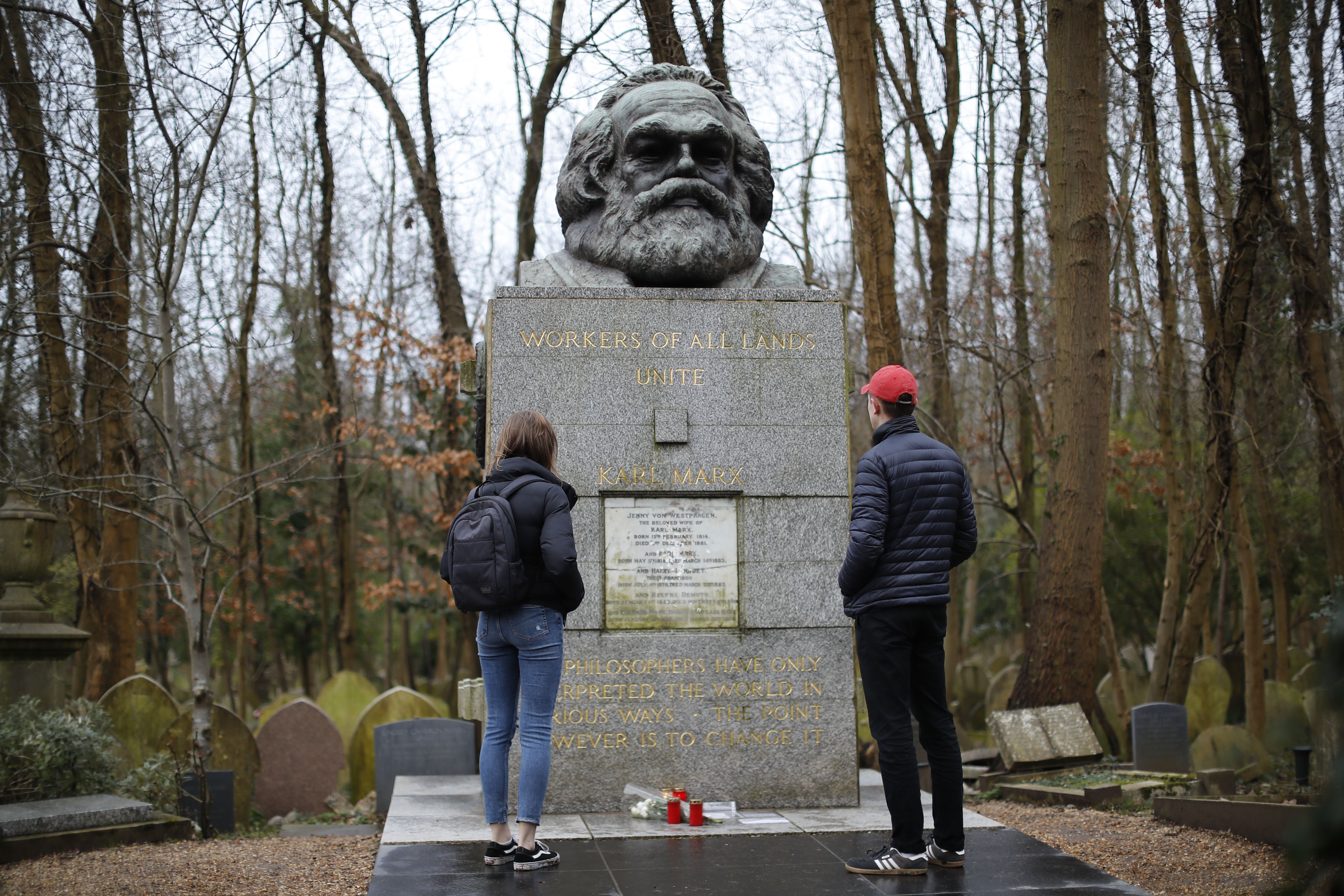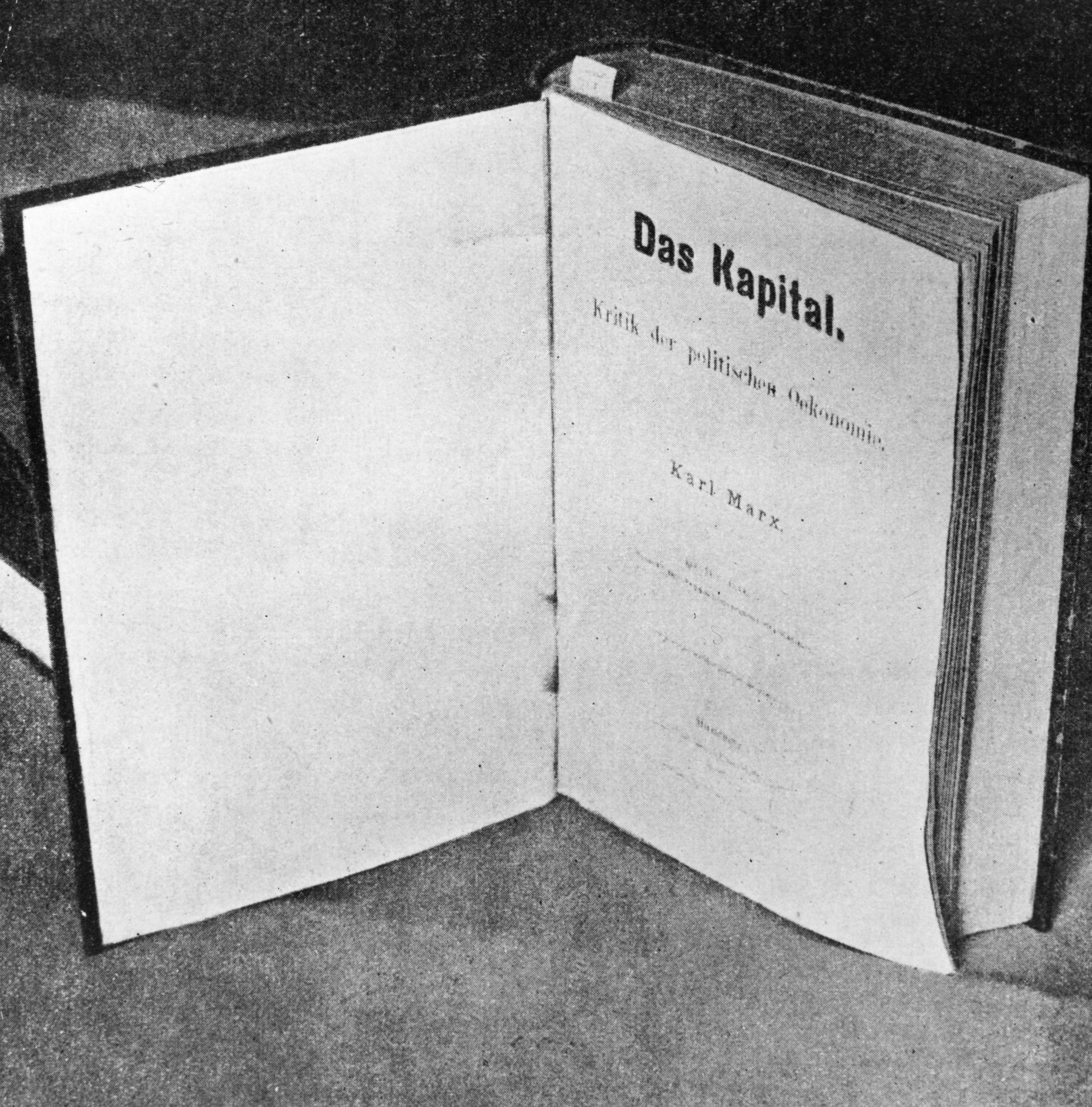Karl Marx: The most important of the modern philosophers?
It is hard to understand the 20th century without referencing Karl Marx and his ideas

By some measures, Karl Marx (1818–83) is the most important of the modern philosophers, in the sense that it is impossible to understand the history of the 20th century without reference to his ideas.
The revolutions in Russia and China were both, at least ostensibly, Marxist in character. The Second World War turned out in favour of the Allies partly because Hitler, blinded by his hatred of communism, ordered an invasion of the Soviet Union. And the Cold War pitched western-style capitalism against societies which identified themselves as socialist or communist.
Marx’s influence, of course, is not a matter of pure happenstance. He wrote with the intention of changing the world. Thus, his Communist Manifesto, written with his friend Friedrich Engels, ends with a call to arms:
“The Communists disdain to conceal their views and aims. They openly declare that their ends can be attained only by the forcible overthrow of all existing social conditions. Let the ruling classes tremble at a communist revolution. The proletarians have nothing to lose but their chains. They have a world to win. Workers of all countries, unite!”
There was little in Marx’s early life to suggest that he would become modernity’s exemplary political radical. He was born on 5 May 1818 in the city of Trier on the banks of the Mosel. His father, Heinrich Marx, was an interesting fellow. A successful lawyer, he converted from Judaism to Christianity shortly before Karl was born, largely to protect his business from Prussian antisemitism. Heinrich was a disciple of the Enlightenment, and he introduced Karl to the writings of great Enlightenment thinkers, such as Leibniz, Voltaire and Kant, and also to liberal political ideas.
The young Marx was a forceful personality. His sisters later recounted how he bullied them relentlessly, but made up for it by reading them stories. He shone at school in literary subjects – though he wasn’t so good at mathematics and history – and it was the intention that he should follow in his father’s footsteps and become a lawyer, and so, in 1835, he went off to the University of Bonn to study law. But a year later, he moved to the University of Berlin, switched from law to philosophy and hooked up with a group of radical thinkers, members of the Young Hegelian Doktorklub. It was at this point that Marx’s radicalism came to the fore. He identified himself as left wing, committed himself to democratic politics and espoused atheism.
For Marx, to be alienated is to be separated from one’s essential humanity; it is to be unable to live a fully human life
Unfortunately for Marx, his newly found radicalism put paid to any hopes of finding an academic job. In 1842, having successfully completed his doctorate, he began the first of a number of jobs editing radical journals. The next few years were probably the most important in the development of his thought. Crucially, in 1844 he began a lifelong friendship with Friedrich Engels (1820-95), the son of a textile manufacturer. It was Engels who introduced Marx to the emergent working-class movement, and also to the study of political economy. This point marks the emergence of a recognisably Marxist social and political philosophy.
It is sensible to strike a cautionary note here. Marx was not straightforwardly a philosopher. It would perhaps be more accurate to describe him as a social or political theorist. His inclusion in a book of this sort is warranted, first, because his work is steeped in philosophy; and second, because he has influenced many philosophers, particularly those working in continental Europe. However, the fact that his work covers a broad range of subject areas – philosophy, economics, political theory and history, amongst others – makes it hard to summarise. Or rather, it means that any summary will be necessarily selective. But having said that, it is certainly possible to identify some of the key themes in Marx’s thought.

Marx and human nature
Perhaps the best jumping off point if we want to understand Marxist theory is to consider how Marx viewed human beings. In other words, did he have a theory of human nature? The answer to this question is an equivocal yes. Marx did not think of human nature in the same terms as, say, a contemporary sociobiologist; he was not, for example, interested in the specification of particular human instincts. But he did think that it was in the nature of human beings to cooperate in a process of collective, freely chosen labour. His idea was that humans come to full self-realisation in the process of transforming the world in their own image through their labour. This is quite a complicated notion – which is not surprising, given that it has an antecedent in the philosophy of Georg Hegel – but perhaps a sense of it can be attained by imagining a team of engineers who put body and soul into producing a fantastic building; when they subsequently gaze at the building, it isn’t too fanciful to think that they see something of their own humanity, of their productive sociality, in their creation.
The importance of this idea that human beings come to full self-realisation through freely chosen labour is that it underpins the concept of alienation, which in turn is the lynchpin of Marx’s criticism of societies that are characterised by class conflict. Put simply, people are alienated when they are separated from the products of their labour and from the labour process itself. This occurs when they lose control over the circumstances in which they engage in productive activity and over the products of their labour. The key point about alienation is that it is always self-alienation. For Marx, to be alienated is to be separated from one’s essential humanity; it is to be unable to live a fully human life.
Self and alienation
Alienation, in varying degrees, is a facet of all class societies; that is, all societies where there is a division between those people who own and control the means of production and those who do not. However, it is in capitalist societies that alienation reaches its zenith. Capitalism is characterised by a fundamental conflict between two great, antagonistic classes, the bourgeoisie, the owners of the means of production (ie factories, machinery, etc), and the proletariat, who own only their own labour power. The proletariat are alienated because they are forced to sell their labour under circumstances not of their own choosing. They have little or no control over the labour process, and their productive energies are expended for the benefit of the class which exploits them. Marx describes the proletarian’s experience of alienation thus:

“He does not fulfil himself in his work but denies himself, has a feeling of misery rather than wellbeing, does not develop freely his mental and physical energies but is physically exhausted and mentally debased. The worker, therefore, feels himself at home only during his leisure time, whereas at work he feels homeless. His work is not voluntary but imposed, forced labour. It is not the satisfaction of a need, but only a means for satisfying other needs.”
However, all is not lost for the proletariat, for it was Marx’s view that they are the bearers of the emancipatory potential of humankind. Capitalism is not indestructible; indeed, according to Marx, it is riddled with contradictions, which in the end will result in its downfall; and it is the proletariat who will bring this about. Specifically, as a class-for-itself, a class aware of its own reality and situation, it is the destiny of the proletariat to abolish all class distinctions, instituting a new form of society – communism – based on collective ownership; in doing so, they will end the alienation of people from the products of their labour, from the labour process itself, and from their essential humanity.
At this point, the Marxist account runs into difficulties; capitalism is still going strong, and the proletariat, if they exist, do not seem to be aware that they are supposed to be a revolutionary force. So what’s gone wrong? Was Marx just incorrect about all this?
It is possible to be charitable here. Marx was aware that capitalism had resources at its disposal to allow it to counter the effects of its internal contradictions. For example, you’ll find that Marxists make a big play about something they call “false class consciousness”. The idea here is that the working class are not aware of their historic destiny as a revolutionary force “because they have been exposed to capitalist ideology”. The bourgeoisie, as a result of their domination of the economic sphere, also control things like the educational system and the mass media. Therefore, they are able to get their ideas out into society at large, with the result that the proletariat remain blind to their true situation. In Marxist parlance, the proletariat never make the transition from a class-in-itself to a class-for-itself.

It is, of course, also possible to argue that capitalism has not crumbled yet, but that it will; that Marx might have been wrong about timescales, but that he got the fundamentals right. This kind of argument is often coupled with an analysis of the way in which capitalist economies have managed to exploit new markets, for example, in the developing world. However, there is something philosophically suspect about this move; the claim that something has not happened yet, but that it is sure to happen at some point in the future is unfalsifiable and there is more than a whiff of blind faith about it.
Moreover, it isn’t clear that Marxism is rescued even if one grants that capitalism might one day come to an end. The problem is that the Marxist idea that capitalism will be replaced by a society free of systematic inequality and conflict just isn’t very plausible. Perhaps wisely, Marx didn’t have a lot to say about the precise form that communism would take. He suggested that people in a communist society – rational, self-aware and other-directed – would no longer be estranged from each other or themselves. His friend Engels envisaged a day when state power and the government of people would not be necessary.
The question is whether, from the perspective of the 21st century, this is a plausible vision of the future. Probably it isn’t. But having said that, it is perhaps slightly unfair to hold Marx up to the standards of 21st-century knowledge when accusing him of flawed understanding. Not least, he had not experienced the horrors of the 20th century when putting his theories together. It is not implausible to think that with the kind of hindsight that the last century leaves us with, Marx might have been less optimistic about human potential and the possibilities for a world without fundamental conflict.

Major works
Paris Manuscripts (1844)
A series of extracts on philosophy and economics, primarily notable for the first proper expression of Marx’s ideas on alienation.
German Ideology (1846)
Co-written with Friedrich Engels, and published only posthumously, the doctrine of historical materialism was first expounded in this work.
The Communist Manifesto (1848)
Classic and polemical statement of Marx’s revolutionary philosophy of history, it became the manifesto of many a communist party. It pursues the political implications of the fact that “the history of all hitherto existing societies is the history of class struggle”.
A Contribution to the Critique of Political Economy (1859)
Noted for its preface, which is a succinct expression of the materialist philosophy of history.
Capital (3 Volumes: 1867, 1884, 1893)
Marx’s definitive and most famous work, still uncompleted at his death. Primarily a work of political economy, it constitutes an exhaustive account of the workings, and failings, of capitalist society. The second and third volumes were edited and published by Friedrich Engels.
Join our commenting forum
Join thought-provoking conversations, follow other Independent readers and see their replies
Comments



Bookmark popover
Removed from bookmarks